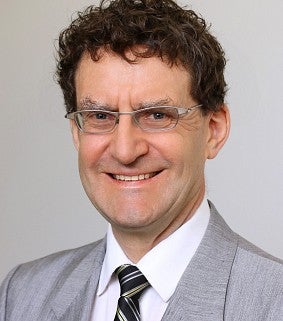Winning a Fulbright award is nothing new for Allen Malony — a professor in the UO’s Department of Computer and Information Science, who now has three such awards — but his latest achievement, a Fulbright-Toqueville Distinguished Chair, is the top honor handed out by the Fulbright organization.
As a 2016-17 Distinguished Chair, Malony will teach courses, do research and participate in conferences and seminars related to his expertise in high-performance computing while serving as a visiting professor at the University of Versailles Saint-Quentin-en-Yvelines in Versailles, France.
“The emphasis on both teaching and research encompasses the full spirit of the Fulbright Distinguished Chair Award, and I am very honored to receive it,” Malony said.

Malony’s teaching has largely been focused on parallel computing theory and practice. Parallel computers utilize multiple processors to execute parts of programs at the same time, making it possible for applications to run faster. The world’s most powerful computer systems today, so-called supercomputers, rely on parallel computing.
“At the heart of my academic and research work is the sincere belief that high-performance computing matters, for science and society,” Malony said. “I enjoy the research interactions that I have with other people and enjoy thinking about the role of high-performance computing in our world and in the future and what it can mean for our ability to solve scientific, social and engineering problems that we have — for the betterment of humanity and our lives.”
While in France, Malony hopes to inspire students and colleagues with his vision of high-performance computing and its potential for next-generation discoveries. He will teach a course on parallel performance engineering methods and conduct research seminars for graduate students.
In addition to having recently launched a new high-performance computing center, Malony and his UO research group work on projects funded by the Department of Energy and the National Science Foundation to develop parallel performance measurement and analysis tools. Malony also directs the UO’s NeuroInformatics Center, which develops advanced integrated neuroimaging tools for next-generation brain analysis.
Malony sees applications for high-performance computing in disciplines ranging from molecular biology to astrophysics to genome sequencing. His interdisciplinary work at the UO includes modeling of the electromagnetics of the human head with the UO Neuroinformatics Center, examining the dynamics of polymers with UO chemistry professor Marina Guenza, computing the paths of sound waves in marine seismic tomography with UO geological science professor Doug Toomey and simulating the mountain pine beetle epidemic with UO geography professor Chris Bone.
“Almost any area of research has opportunities for using parallel computing systems,” Malony said.
Malony came to the UO in 1991 after serving as a senior software engineer at the University of Illinois Center for Supercomputing Research and Development. He spent a year as a Fulbright Research Scholar and visiting professor at Utrecht University in the Netherlands and was awarded the NSF National Young Investigator award in 1994.
In 1999 he was a Fulbright Research Scholar to Austria at the University of Vienna. In 2002, he was awarded the Alexander von Humboldt Research Award for Senior U.S. Scientists.
The Fulbright program was established in 1946 to increase mutual understanding between the U.S. and other countries through the exchange of students and scholars. The Fulbright-Toqueville Distinguished Chair was created by the Franco-American Fulbright Commission, in partnership with the French Ministry of Higher Education and Research and the U.S. Department of State. It commemorates Alexis de Tocqueville’s 200th birthday and Senator J. William Fulbright’s 100th birthday.


